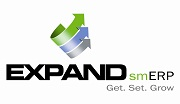We are close to witnessing the next big industrial revolution, with prominent companies taking the major leap towards automation by implementing manufacturing ERP software. It is now becoming the mainstream where it is evaluative to deal away with limitations in IT structure once and for all; it signifies a rapid transformation of the manufacturing unit processes. Propitiously, cloud technology enables us to utilize the on demand computing power in scalable and flexible manner. Needless to say cloud technology in manufacturing cannot be treated as an option but an opportunity to explore.
Why cloud technology an enabler in manufacturing?
Cloud technology is not a panacea, but an enabler to enact other panaceas that were traditionally required for heavy computing. Today the inexorable advanced march of technology introduced us to cloud models specifically software for manufacturing industry with inbuilt services, infrastructure, and platform. Here manufacturers can select solution of their choices, further strategize migration in various stages, undoubtedly this is making cloud technology convenient and flexible option for the manufacturers. This enables the synchronization of data from multiple channels into one dashboard, eliminating the manual data transferring from multiple systems. Cloud technology improves synchronization of data by designating one point as the channel of information and enables access to it through smart devices.
Scepticism vs. hesitancy
Although cloud technology has gained massive tractions, out there is equally consistent hesitancy as well. Many surveys conducted on SaaS adoption namely in manufacturing and other industries follow the stated insights:
=> In general, 65% of the interviewee is unable to differentiate between single & multi-tenant SaaS architecture.
=> Within a decade SaaS based applications anticipate a growth of 20%-25% on manufacturing as well as distribution software.
=> A prominent advantage this incorporates is providing customers to quantify control over upgrades, consistent support for worldwide operations, and support for frequent and rapid upgrades.
Besides, there are people who are sceptic about the costs involved and perceived benefits in moving to the cloud. Overall, there is also hesitancy among the non technical people about the process of cloud implementations and the scope of manufacturing.
Clarity to eliminate hesitancy
As we know whenever there is hesitancy there is a scope of clarity, the manufacturers may need to transit the entire business operation processes, to go by the advice for cloud migration. This calls for ERP specialist for the smooth run. ExpandERP is one of the companies who offer extensive cloud technology for manufacturers.
Benefits of cloud-based ERP:
=> Instant data access globally.
=> Single platform to manage field services, sales, finance, operation and more.
=> Unique mechanism to capture high volumes of data.
=> Customized integration for business requirements and more.
However, 90% of manufacturers are using the cloud, more than 70% of cloud users stated that cloud technology has conclusively impacted their ability to meet customer demands across the globe, 45% says that cloud is a significant contributor to product introductions. If you think survey reports are not that important for you to take up, consider the following:
1. Deliver on Demand:
To meet your demand efficiently you will require an accurate anticipation of it. Taking a look at order history and further using it to create the forecast, here the forecast depends on demand and capacity planning- here the gap is can be easily noted. With cloud technology, you can share the same across the departments for necessary adjustments.
2. Control Shop Floor:
Above real-time visibility, all manufacturing activity is captured in one database for preparing analysis across the globe. Regulating production is real-time refers to data driven quality management and high resolution traceability, thus allowing customers to better shop floor control and visibility of process alongside production.
3. Connect business:
Connected manufacturing is quite beneficial as it not only connect the devices, machines etc. on the shop floor but also to the top floor. This further allows the people in the unit to access data in order to improve their decision making scenarios.
Many manufacturers agreed that they sometimes failed to capture operation data, manufacturing ERP software enabled them to do so within the cloud. For some this has been the most scalable transformation in their business in how they work with suppliers, control their inventory, design products, manage quality, and deliver product on demand. This agility, control, and flexibility have seen the real game changer.


Thank you for sharing this informative blog with us.
ReplyDeleteBest ERP Software